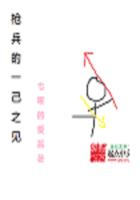These three expedients had a common fault, that of sacrificing one class to another, and founding the profit of trade, not on the advantage of consumers, but on the loss of cultivators, capitalists, or workmen; so that its profits, far from being an increase of the national wealth, were a displacement of it. The raw materials on which the arts operate, are all, or nearly all, produced by agriculture or at least drawn from the ground; hence they form part of the proprietor's or the cultivator's wealth. If some advantage did not arise from exporting them, nobody would think of forbidding them to be exported. This prohibition indicates sufficiently, that the persons who produced them were better paid, or gained more by selling them to strangers; and the law restricts their market, in opposition to the principle which we have pointed out above, as the foundation of commercial interest; the principle of obtaining for each article of produce the highest possible price. From such prohibitions to export, there must result, first, a diminution in the price of the raw material, for its price is no longer kept up by free trade; secondly, a diminution in the quantity produced, because it is regulated by the interior demand; and lastly, a deterioration of its quality, for a calling which is ill rewarded, is likewise ill attended to. This, therefore, is one of the most injudicious means of favouring trade; and at the same time, it sacrifices the income of all those who contribute to produce the raw material. Whatever trade gains from them, cannot be considered as adding aught to the national revenue.
To fix the interest of money, or to suppress it altogether, as some legislators have attempted, has, generally been the consequence of religious prejudices, and of mad attempts to adapt the Jewish legislation to modern Europe. The effect of these laws, so opposite to the general interest, has always been either to force contractors to envelop themselves in a secrecy which they must require payment for, and may use as a snare for the unsuspiciousness of others; or else to force capitalists to employ, in other counties, that capital which they could not lend in their own neighborhood, with the same safety and advantage.
But the very end which legislators proposed was bad; a diminution in the rent of the national capital, is a national evil; it is a loss of part of the revenue. Most frequently, indeed, this evil is the sign of an advantage greatly superior to it, namely, the increase of capitals themselves; but, in forcibly producing the sign, we cannot at all forcibly produce the thing, any more than by turning round the pointers of a watch we can alter the flight of time.
Attempts on the part of government to fix the rate of wages, to make workmen labour at a lower price, are ever the most impolitic and the most unjust of these partial laws. If government should propose, as an object, the advantage of any one class in the nation at the expense of the rest, this class ought to be precisely the class of day-labourers. They are more numerous than any other; and to secure their happiness is to make the greatest portion of the nation happy. They have fewer enjoyments than any other; they obtain less advantage than any other from the constitution of society; they produce wealth, and themselves obtain scarcely any share of it. Obliged to struggle for subsistence with their employers, they are not a match for them in strength. Masters and workmen are indeed mutually necessary to each other; but the necessity weighs daily on the workman; it allows respite to his master. The first must work that he may live, the second may wait and live for a time without employing workmen. Hence in the riots and combinations of workmen for obtaining an increase of wages, their conduct is often violent and tumultuous, and often merits the chastisement which it never fails to receive; but scarcely an instance exists, where justice has not been upon their side.
The expedients invented by governments to assist their merchants in selling dear, are numerous. Some tend to diminish the number of producers in a market of given extent, and therefore to force buyers to raise their price; such are apprenticeships, corporations, monopolies granted to companies, prohibitions to import, exclusive governments of colonies, and favours obtained by treaties of commerce; others, such as bounties and drawbacks, are destined really to extend the market; though, by securing to the manufacturer a profit at the government's expense, not the consumer's.
The regulations of apprenticeships and the statutes of corporations, were destined, it is said, to hinder ignorant workmen from following any trade which they did not yet understand; they were forced to devote a determinate number of years to learn it, and afterwards to gain admission into a body which always made obstacles to the entrance of new comers, and limited their number. The pretence of thus watching over the training of artisans cannot be made good. It has often been proved, that rivalship alone gives that training, whilst a long apprenticeship blunts the mind and discourages industry; but the true, though secret object, to diminish the number of those exercising a trade, was attained. The corporate body exercised a kind of monopoly against the consumer; it took care at all times to keep the supply below the demand. The merchant doubtless gained more; but he gained on a smaller production. There was less work done, less increase of capital, less population supported; and as to the merchant's extraordinary profit, it was compensated by an equal loss to the consumer, who was obliged to pay, not according to his own advantage or convenience, but according to the arbitrary caprice of a corporation which gave laws to him.















